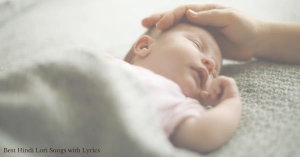The postpartum period is a time of profound change, both emotionally and physically. For many women, one of the most challenging aspects of this period is accepting and embracing the changes in their bodies. Postpartum body image issues can be overwhelming, as new mothers adjust to the physical transformations that occur after childbirth. The pressure to "bounce back" to a pre-pregnancy body, often perpetuated by social media and societal expectations, can make this journey even more difficult. However, embracing the postpartum body is not only essential for mental health but also sets a positive example for children.
The Reality of Postpartum Body Changes
- Physical Changes After Childbirth: Pregnancy and childbirth significantly alter the body. Stretched skin, weight gain, hair loss, and even changes in breast shape are all common. Hormonal shifts also play a role in how the body heals and reshapes itself after giving birth. While some of these changes are temporary, others may be permanent. It’s essential for new mothers to acknowledge that these changes are normal and part of the process of bringing new life into the world.
- The Myth of "Bouncing Back": The idea that women should quickly return to their pre-pregnancy body is unrealistic and harmful. For many women, this expectation leads to feelings of inadequacy and disappointment. Instead of focusing on "bouncing back," it’s more productive to focus on recovery, health, and well-being. Postpartum is a time for healing, not for conforming to external pressures.
The Psychological Impact of Body Image Issues
- Societal Expectations and Media Influence: The media often glorifies celebrities who appear to regain their pre-pregnancy bodies within weeks of giving birth, but these portrayals are often unrealistic and set impossible standards. The pressure to look a certain way can lead to body dissatisfaction, which, in turn, affects mental health. It's crucial to challenge these unrealistic standards and focus on personal well-being.
- The Role of Social Media: Social media platforms are filled with images of idealized post-baby bodies. This can intensify feelings of inadequacy in new mothers. It’s important to curate a social media feed that promotes body positivity and realistic postpartum experiences, focusing on content that empowers rather than pressures.
Embracing and Celebrating the Postpartum Body
- Appreciating the Strength of Your Body: Your body has just accomplished an incredible feat—growing and delivering a child. Shifting the focus from appearance to function can help foster a sense of gratitude and appreciation for your body. Instead of criticizing yourself for not fitting into pre-pregnancy clothes, focus on what your body has achieved.
- Self-Care and Recovery: Postpartum recovery is a slow process, and it's important to prioritize self-care. This doesn’t mean focusing on dieting or strenuous exercise but instead nurturing your body through rest, gentle movement, and proper nutrition. Exercise, when done with the goal of feeling good rather than losing weight, can also help improve mood and body image.
- Surround Yourself with Positive Influences: Body image issues are often influenced by the people and media you consume. Surround yourself with people who uplift and support you. Whether it's online communities of other new mothers or friends who celebrate the postpartum journey, having a support system can make a significant difference in how you view yourself.
Setting a Positive Example for Your Children
- Body Positivity Starts at Home: Children absorb the attitudes and behaviors of their parents. By embracing your postpartum body, you set a positive example for your children, teaching them the importance of self-acceptance and body positivity. Your children are likely to model your attitude toward body image, so it’s important to show them that all bodies are worthy of love and respect.
- Breaking the Cycle of Body-Shaming: Body-shaming is pervasive in society, but it doesn’t have to be in your home. By speaking kindly about your own body and others, you can break the cycle of body-shaming and instill values of self-love and acceptance in your children.
The Importance of Acknowledging Emotional Changes
In addition to the physical changes, the emotional toll of adjusting to a postpartum body is often underestimated. Many new mothers experience fluctuating emotions, ranging from joy to anxiety or even postpartum depression. These feelings can be exacerbated by body image issues. It's essential to recognize that emotional well-being is deeply connected to how one feels about their body. New mothers should be encouraged to seek support, whether from family, friends, or professionals, to navigate this complex emotional landscape. Addressing mental health is as vital as physical recovery in the postpartum period.
Fostering Self-Compassion During the Postpartum Period
Developing self-compassion is key to overcoming body image issues after childbirth. Many mothers are harsh on themselves, comparing their postpartum journey to others, often feeling like they fall short. Practicing self-compassion means treating yourself with the same kindness you would offer a friend. This involves acknowledging that everyone’s postpartum journey is different and that it's okay to take time to heal. Embracing imperfections, recognizing your body’s accomplishments, and allowing yourself grace in the recovery process can profoundly shift your perspective on postpartum body image.
Conclusion
Postpartum body image struggles are real and challenging, but embracing and celebrating your body is crucial for mental well-being and for setting a positive example for your children. Postpartum is a time for recovery, healing, and self-compassion—not for meeting unrealistic beauty standards. By shifting the focus from appearance to health and function, new mothers can find peace and gratitude in their postpartum bodies.








